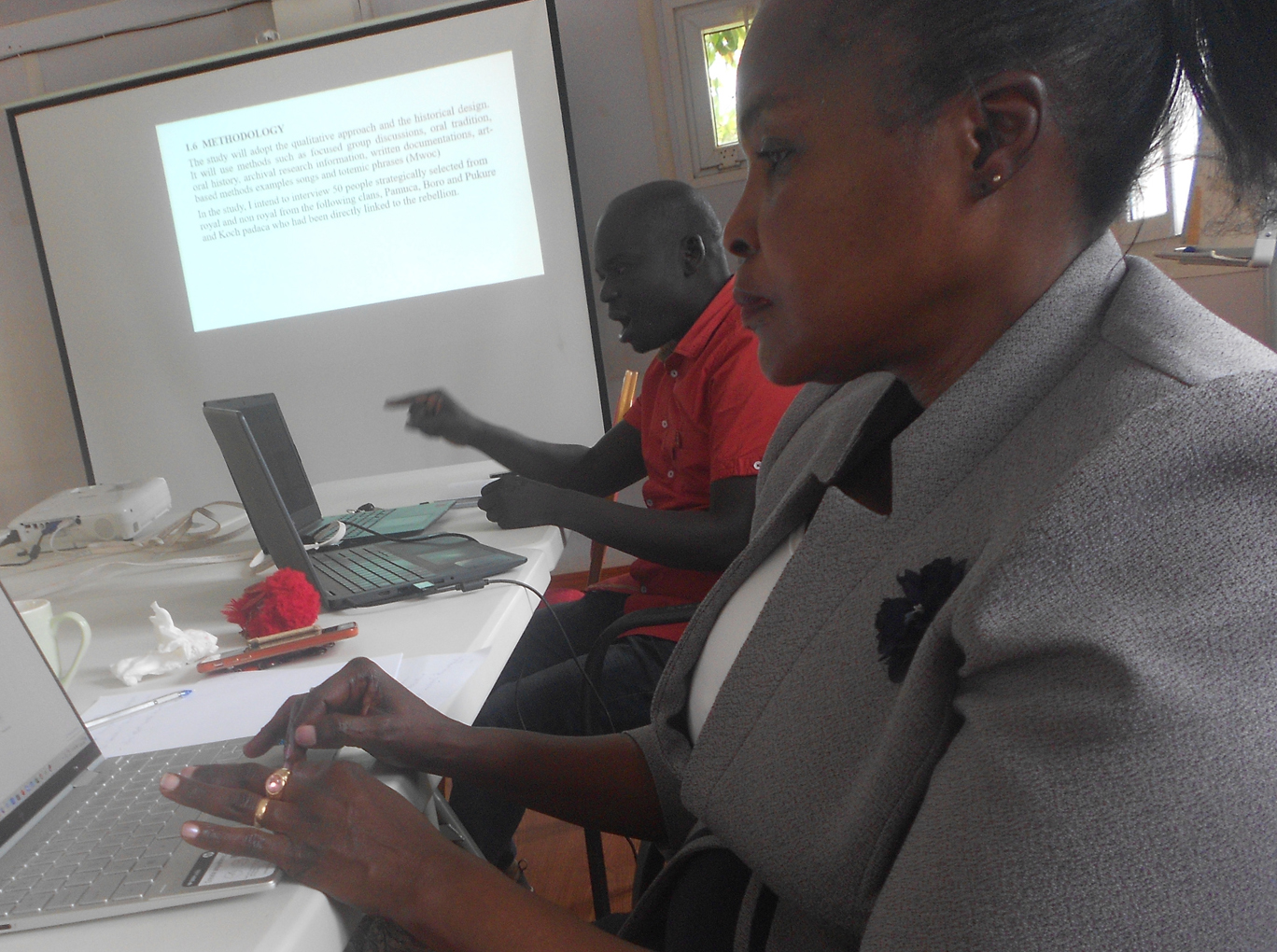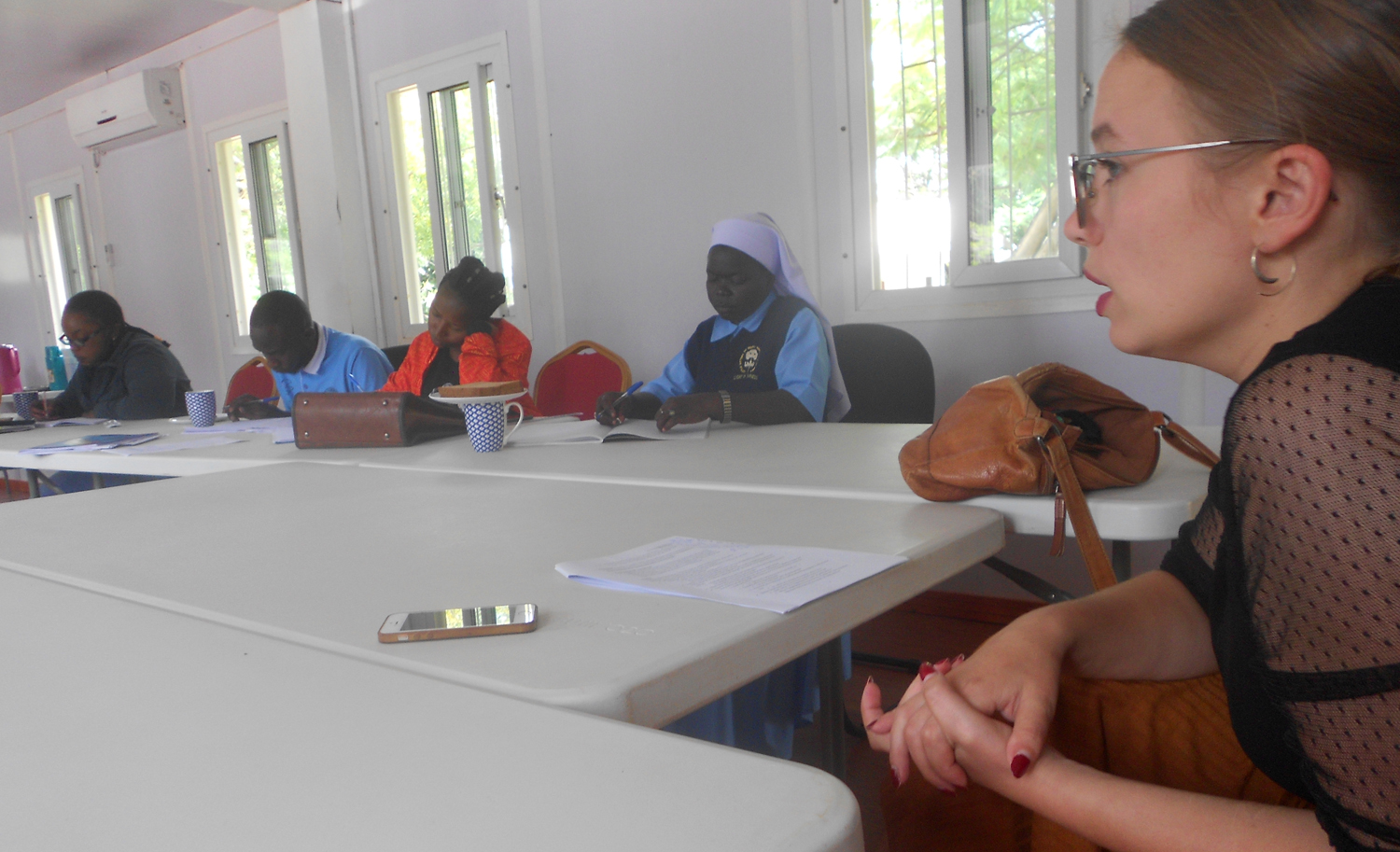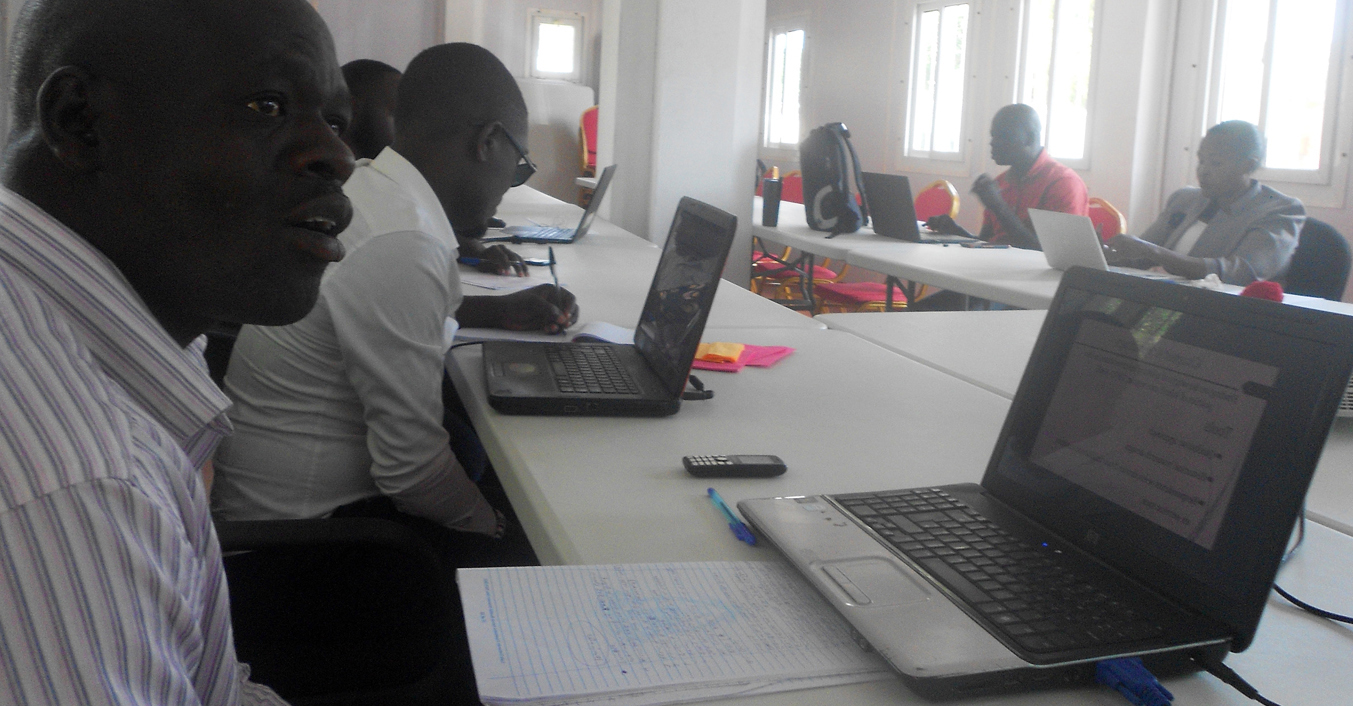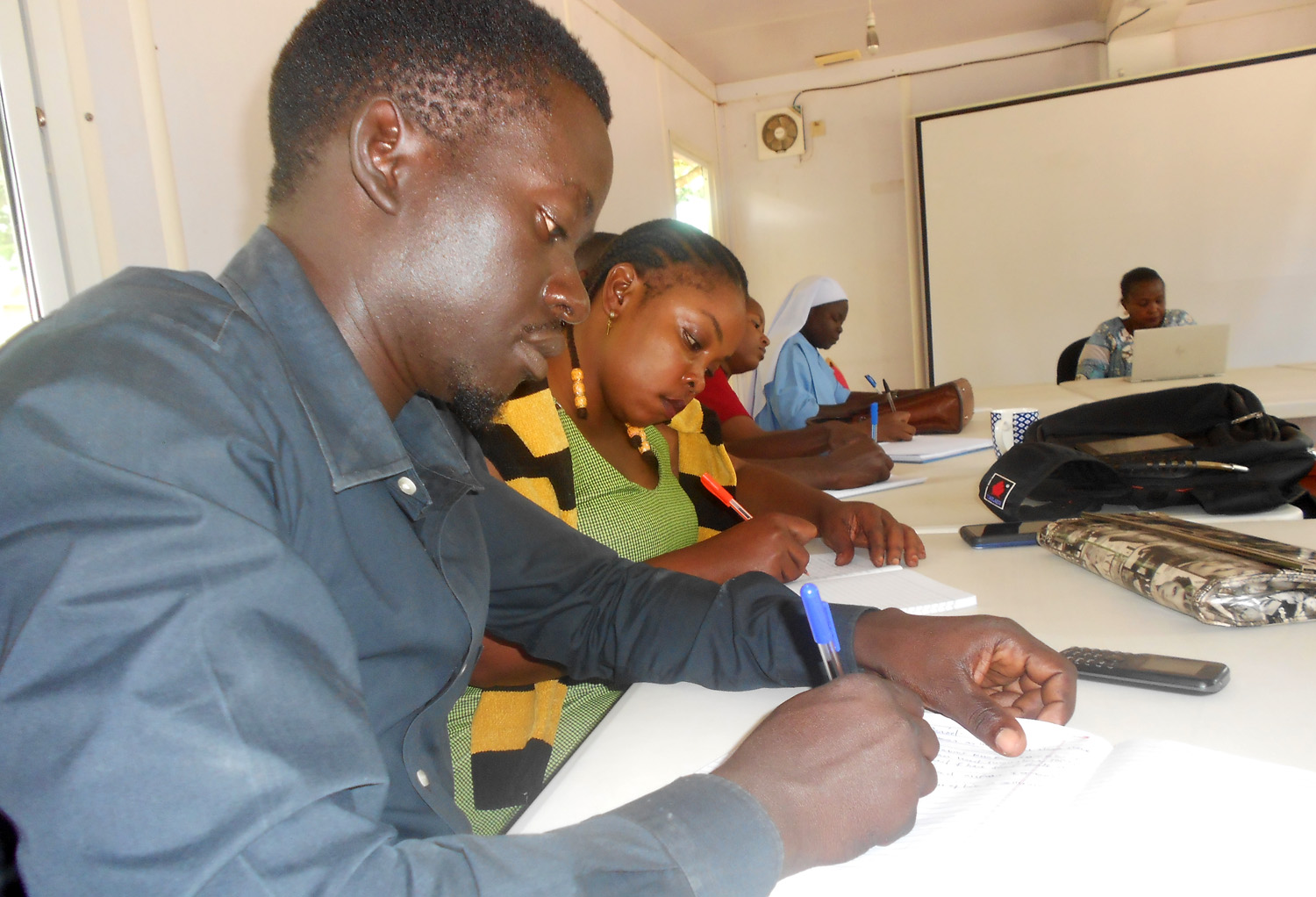The first and second cohorts of MA History students at Gulu University on September 30, 2022, held a seminar, the first of a series, during which individuals presented their research and received comments and questions from their colleagues, a supervisor, and other interested participants.
“The purpose of this meeting is to allow you to present your work to your peers to enable you to receive support from them. Through this, we are preparing you for your defence,” said BSU Coordinator and Lecturer of History, Dr. Agatha Alidri, in her opening remarks. Dr. Alidri is one of the supervisors in the Department of History, Faculty of Education and Humanities.

Dr. Alidri follows presentations during the seminar
The History MA programme was approved in 2019 by the National Council for Higher Education (NCHE) alongside several new PhD and MA programmes in the Faculty of Education and Humanities and the Faculty of Business and Development Studies. The development of those programmes was funded by BSU.
The History MA programme has so far had three intakes with six students for Academic Year 2020-2021, seven for 2021-22, and a confirmed six for 2022-2023. The number for 2022-2023 is expected to rise after some students who had not been admitted appealed. All three intakes, however, have happened during two academic years (2021- 2023) due to disruptions in the education sector brought about by Covid-19 and the measures to control its spread.

Leonie Benker, a researcher affiliated to the Department of History, delivers a lecture on Academic Writing to the third cohort. Leonie is a PhD student of Social and Cultural Anthropology at the Freie Universitat Berlin in Germany.
Five MA students presented their research. They included Richard Onek Aure, Ezekiel Mbazalire, Simon Okello, David Onyach and Tina Aciro. Alex Sebaana, a lecturer at Gulu and currently pursuing his PhD at Makerere University, also presented his research proposal for questions and comments.

Richard Onek Aure presents his study
Participants share lessons from the seminar
Tina Aciro: “It was a very considerate way of evaluating my progress, making checks on oversights, redirecting the work, and above all, morale-boosting. I now know that I have the support that I need. This review helped me to see gaps in my work and to identify inconstancies that call for additional research. It assessed my knowledge in the area and made me realize how essential my topic is. I would recommend that the seminars be organized weekly to enable us to receive extensive support and consultations.”
Ezakiel Mbazalire: “One thing I learnt from the seminar is to accept positive criticism from my peers and our seniors. The seminar also exposed me to better ideas and concepts regarding my research, like the current statistics on charcoal and other fuels used in cooking. It also opened my mind to new and better theories for my study.”
Alex Sebaana: “Colleagues critiqued my work and guided me, especially in reshaping my research questions and improving on my background to the study. This really energised me. I was also happy to give my input in order to help my colleagues improve on their work. I look forward to attending more of these workshops since they build my confidence and also my academic work.”
Patrick Kabwijamu: “I am so glad to have attended the first seminar. Although I am new – this is my first year - I have been able to get more knowledge and information about defending one’s research. I have also learnt about how to phrase objectives, research questions, significance, and justifications.”







